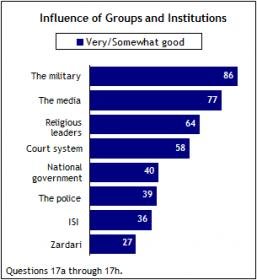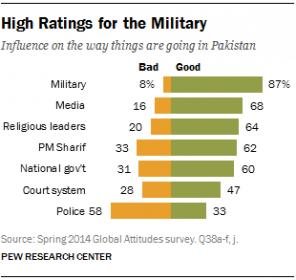DW44
T20I Debutant
- Joined
- Apr 12, 2009
- Runs
- 7,314
https://www.dawn.com/news/1402276/hrcp-report-and-the-missingTHE details may change somewhat from year to year, even show an improvement here and there, but the overall picture of the state of human rights in this country remains dismal.
The HRCP’s latest annual report — dedicated to that redoubtable human rights defender, the late Asma Jahangir — is a trenchant illustration of the fact that a decline in casualties due to terrorism does not necessarily translate into respect for people’s inalienable rights.
Granted, some progressive legislation was enacted, but we fell short on a number of fronts.
Religious minorities and law-enforcement personnel continued to be targeted by extremist elements.
Mob violence, especially driven by allegations of blasphemy, showed no let up; in fact, the nation plumbed a new low with Mashal Khan’s murder.
Gender equality and sexual violence against women and children still pose a huge challenge.
Moreover, sinister methods have been devised to stifle freedom of expression, both in mainstream and social media, and society in general.
To this is linked yet another issue of grave concern — highlighted in the HRCP report — which is escalating alarmingly: enforced disappearances.
The Commission of Inquiry on Enforced Disappearances received 868 cases last year, more than in either of the previous two years.
Thus while the nation has comparatively less to fear from collectively being in the wrong place at the wrong time, its citizens increasingly have to look over their shoulder, and watch what they say and do if they value their freedom, sometimes their very lives.
The practice of enforced disappearances is a stain on any civilised country, and it is a manifestation of unrepresentative, unaccountable state elements tightening their grip over Pakistani society.
The vile practice, which figures prominently in the playbook of some of history’s most infamous regimes, began in this country from the backwaters of Fata and the provinces and has now reached a point where anyone, anywhere, is fair game.
Numerous bloggers, journalists, rights activists, political workers, etc have experienced the terror of the midnight knock and, increasingly, abduction in broad daylight.
All that is required is a point of view that is secular and/or questions the national security policy.
For a government-appointed body with the mandate to document missing persons and bring the perpetrators to justice, the CIED, while doing well in the first, has comprehensively failed in its second task.
That, arguably, is why the abductions have become ever more brazen.
Given this context, the statements on Tuesday by the head of the commission, retired Justice Javed Iqbal, before the National Assembly Standing Committee on Human Rights, are extremely unfortunate.
Disregarding multiple eyewitness accounts, ignoring the reality of grossly unequal centres of power in Pakistan, and holding the government alone responsible, makes the prospect of putting an end to enforced disappearances even more remote.
The finger of blame should be pointed where it belongs.
For some reason no one seems willing to even discuss the fact that people are going missing in their hundreds, and almost all of them tend to be from the same background: human rights activists, liberals, critics of the security state and those demanding accountability of the biggest sacred cow in the land. Worse still is the obscurantism that rears it's ugly head from the usual quarters when the issue is brought up since a civilized discussion on the matter requires pointing fingers at everyone's blue eyed boys who clearly have nothing to do with the disappearances.
The last two paragraphs sum it up beautifully:
"Disregarding multiple eyewitness accounts, ignoring the reality of grossly unequal centres of power in Pakistan, and holding the government alone responsible, makes the prospect of putting an end to enforced disappearances even more remote.
The finger of blame should be pointed where it belongs."
It's just a handful of words but the message they contain is clear - we know who's responsible but we'd rather point the fingers at incorrect but more convenient targets because it's not us getting abducted so who cares, right? Quite disgraceful how the average Pakistani deals with this issue.
The 868 reported (and several times as many unreported) cases, much higher than in previous years, confirm my suspicions that those who must not be named because they excrete roses and rainbows, and are the greatest thing since sliced bread, have become more brazen as public support for enforced disappearances has risen and 2017 was a particularly brutal year.
Last edited:








